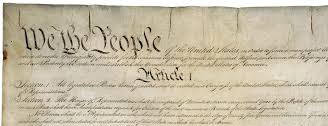High school football coach Joseph A. Kennedy of Bremerton, Washington, feels that his Christian faith requires him, at the end of a football game, to give thanks to God for the accomplishments of his players and his role in their lives as a football coach, and to do so in the physical space where the good experience took place: on the field. Thus, at the end of each football game, he would kneel down on the 50-yard line and pray. Some students who shared his beliefs started joining in the prayer with him. Other students, apparently, felt that maybe they had better join in too, in the hopes that he would look upon them favorably, since a football coach holds a lot of power in young players’ lives.
This situation came to the attention of the school authorities, who instructed Coach Kennedy to stop, as they did not want to be sued for violating the establishment clause. It should be remembered that there is a firm body of Supreme Court case law prohibiting school districts from leading prayers in school. One such case specifically involves football games: Santa Fe Independent School District v. Doe (2000). Kennedy refused to stop, so the district put him on paid leave. He sued, claiming that he was being deprived of both freedom of speech and the free exercise of religion. He lost in both federal district court and the Ninth Circuit Court of Appeals. Now the case is before the Supreme Court, which heard the arguments from both sides on Monday, April 25.
At first glance, it might seem like an open-and-shut case with Coach Kennedy on the losing side, and it probably would have been precisely that just a few years ago. But now, the conservatives dominate the Court by 6-3, and the conservatives on the Court do not agree that there needs to be a rigid separation of church and state. Thus, Kennedy may well win this case.
One of the issues involved is whether Kennedy, in kneeling down on the 50-yard line and saying a prayer with some of the students joining in, is acting as a private person or as a representative of the school district. But there’s another issue, which is where case law precedent may shift: Even if Kennedy is acting in his official capacity when he prays, does the establishment clause prohibit it?
A public school district is an agency of government, and thus bound by the words “no state shall…” in the Fourteenth Amendment, which gives the federal courts jurisdiction. An important precedent in any case that involves government and religion is Lemon v. Kurtzman (1971), where the Court ruled that an agency of government cannot endorse a religion. But in the questions and remarks offered by the conservative justices during the arguments session, one could sense that some of them want that precedent to be modified, so that the key criterion would not be endorsement of religion, but rather, coercion to participate in a religious activity.
The school district, in ordering Coach Kennedy to stop praying on the 50-yard line after a game, was trying to make sure it obeyed the “establishment of religion” clause, but that district may soon be told that, in so doing, it violated the “free exercise” clause.
Full text of the 2021 ruling by the Ninth Circuit Court of Appeals
Article by Amy Howe on Scotus Blog, April 25, 2022
Report by Nina Totenberg on NPR, April 25, 2022 (In this report, the 1971 case referred to is Lemon v. Kurtzman.)



